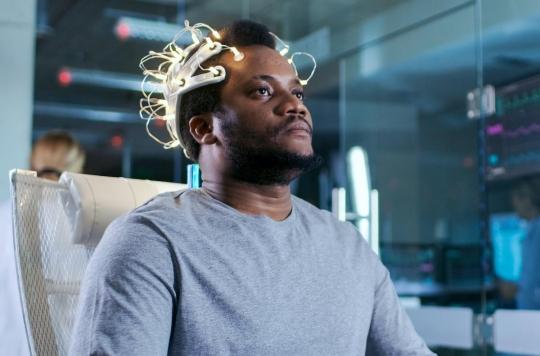Our conscious ability to make decisions, or free will, is linked to internal bodily signals, including breathing. Specifically, one would be more likely to make a decision when exhaling.

A new scientific step in the discovery of the conscious decision-making process has just been taken. Researchers from the University of Lausanne (Switzerland) have succeeded in discovering that internal bodily signals influence voluntary acts. We already know that internal body signals, such as heartbeats, can serve to reduce the perception of pain. These internal signals, in particular breathing, would be at the origin of our conscious decision-making. The researchers published the results in the journal NatureCommunications.
The principle of motor preparation at the heart of decision-making
At the heart of these results is the principle of motor preparation (RP, for potential readiness). This signal of cerebral activity is observed even before the subject is aware of his intention to perform a movement. For some, it is precisely the RP that justifies the illusion of free will since it appears systematically even before being aware that one is going to perform an action.
The researchers, on the other hand, assume that our conscious decisions result from a cascade of electrical impulses launched by neurons. The origin of RP could open a window on the mechanisms at the origin of voluntary actions and free will. The results of the study precisely suggest that the origin of RP is linked to breathing, which is part of the mechanism that leads to conscious decision-making and acts of free will; we are more likely to initiate voluntary movements when we exhale.
Observing the breath to predict the action
To conduct their study, the researchers asked 52 people to press a button at will. The participants were provided with an electroencephalogram to record their brain activity and a belt around the chest to measure breathing and record heart activity. Researchers realized that breathing, and more specifically exhaling, is linked to decision-making, unlike heartbeat. “This suggests that higher level motor controls, such as voluntary actions, are determined or affected by the involuntary and cyclical motor actions of our internal organs, particularly the lungs.analysis Hyeong-Dong Park, co-author of the study. But we still need to trace the precise neural activity that controls breathing.”
These results suggest that the respiratory rate could be used to predict the launch of a voluntary action. “We show that voluntary actions are indeed linked to the internal state of the body. This is especially the case with breath and exhalation, but not with other bodily signals like heartbeats”decrypts Olaf Blanke, lead author of the study.
A discovery that opens up many perspectives. Thus, we could exploit the movement of the breath to predict consumer behavior or even develop diagnostic tools for patients suffering from deficits in the control of voluntary action, for example in cases of obsessive compulsive disorder, Parkinson’s disease or Tourette’s syndrome.
.
















